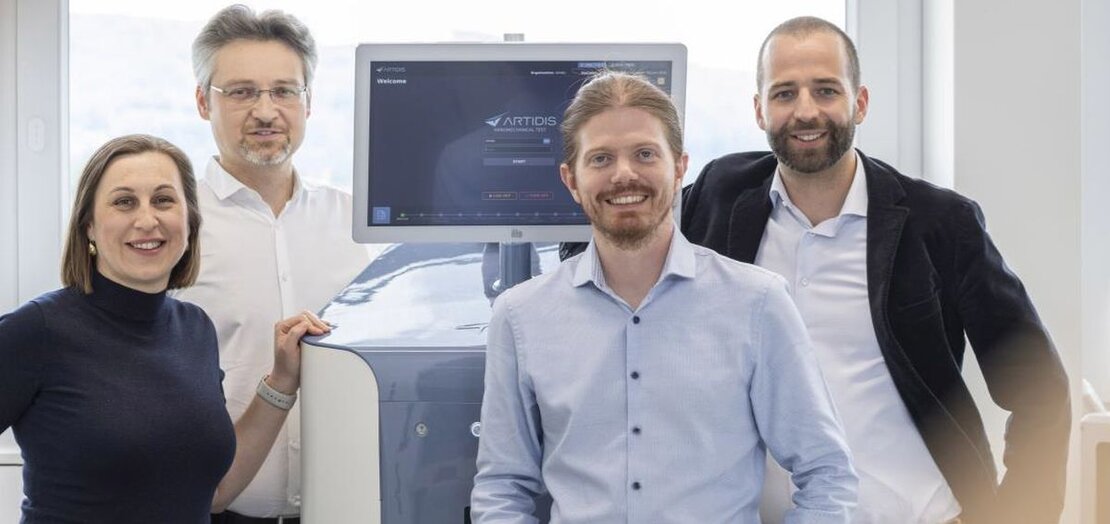Good news for cancer patients
25.06.2020ARTIDIS AG, a clinical-stage health-tech company, announced today that its proprietary nanotechnology platform for cancer diagnosis has met the primary endpoint in the “NANO” clinical study. The start-up was able to detect cancer with a sensitivity of 96% and a specificity of 78%. NANO was designed to demonstrate the power of using a nanomechanical biomarker to evaluate breast biopsies within a routine clinical setting.

The primary endpoint of the study was to achieve a sensitivity (proportion of true positive results divided by the total number of patients with a malignant tumor) for cancer diagnosis of at least 90% (CI 95%). The analysis for the primary endpoint was performed on data obtained from 520 patients. Biopsy tissue was categorized as “normal”, “benign” or “malignant” based on a “Nanomechanical Score” as determined by the ARTIDIS nanotechnology platform. After the determination of the “Nanomechanical Score”, histological analysis of the same specimens was performed to serve as a gold standard for comparison with the “Nanomechanical Score".
ARTIDIS was able to detect cancer, including lesions with < 5% neoplastic tissue, with a sensitivity of 96% and a specificity of 78% (CI 95%, AUC = 0.94), meeting the primary study endpoint.
“We are very pleased with the excellent results from this first prospective study conducted in Switzerland. It demonstrates the clinical utility of the nanomechanical biomarker in a routine clinical setting at the patient bedside. We are convinced that this brings us one step closer to providing patients undergoing a biopsy procedure with same-day diagnosis, opening the path to personalized cancer treatment plans guided by the ARTIDISNet platform.” said Marija Plodinec, PhD, CEO of ARTIDIS AG.
Secondary endpoints evaluated the ability of the nanomechanical biomarker to distinguish and further categorize molecular subtypes of breast cancer based on their aggressiveness and potentially poor treatment response.
While exploratory, secondary analysis indicates that the nanomechanical biomarker can be used independently of histopathology to differentiate and further categorize specific molecular subtypes of breast cancer (sensitivity 83%, specificity 82%, CI 95%, AUC = 0.86). The study includes a long-term follow-up of the same patients after two, five, and ten years.
“Secondary analyses indicate that this novel technology will be able to subclassify the breast cancer subtypes into more or less aggressive subgroups, which could define the patients’ treatment plan and thus reduce over- and under-treatment.” commented Rosemarie Burian, gynecologist at the Breast Center, University Hospital Basel and lead investigator of the study.
(www.startupticker.ch)